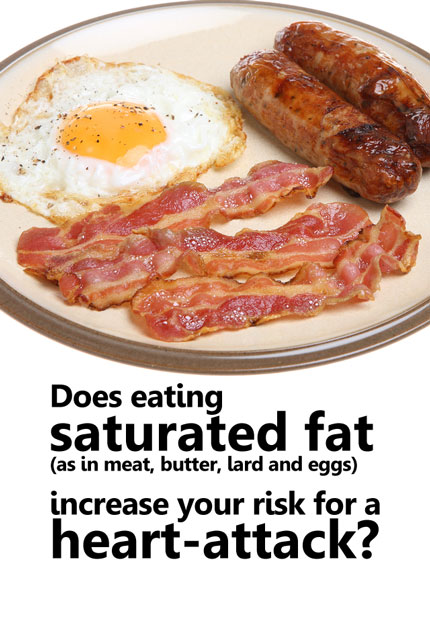
References
Saturated fat
".. there is no significant evidence for concluding that dietary saturated fat is associated with an increased risk of [coronary heart disease] or [cardiovascular disease]" Siri-Tarino, P. W., Sun, Q., Hu, F. B., & Krauss, R. M. (2010). Meta-analysis of prospective cohort studies evaluating the association of saturated fat with cardiovascular disease. The American journal of clinical nutrition, 91(3), 535–46. doi:10.3945/ajcn.2009.27725
"...the evidence of dietary saturated fats increasing CAD or causing premature death was weak. Over the years, data revealed that dietary saturated fatty acids (SFAs) are not associated with CAD and other adverse health effects ... Several recent analyses indicate that SFAs, particularly in dairy products and coconut oil, can improve health...The replacement of saturated fats in the diet with carbohydrates, especially sugars, has resulted in increased obesity ...The adverse health effects that have been associated with saturated fats in the past are most likely due to factors other than SFAs, ...This review calls for a rational reevaluation of existing dietary recommendations that focus on minimizing dietary SFAs, for which mechanisms for adverse health effects are lacking. " Lawrence, G. D. (2013). Dietary Fats and Health : Dietary Recommendations in the Context of Scientific Evidence Adv Nutr May 2013 Adv Nutr vol. 4: 294-302, 2013
"substituting dietary linoleic acid in place of saturated fats increased the rates of death from all causes, coronary heart disease, and cardiovascular disease. An updated meta-analysis of linoleic acid intervention trials showed no evidence of cardiovascular benefit" Sydney Diet Heart Study: Ramsden et al, Use of dietary linoleic acid for secondary prevention of coronary heart disease and death: evaluation of recovered data from the Sydney Diet Heart Study and updated meta-analysis, BMJ 2013;346:e8707
"[…On lower carb diets] higher saturated fat was associated with lower VLDL-C and [triglycerides]." Wood, A. C., Kabagambe, E. K., Borecki, I. B., Tiwari, H. K., Ordovas, J. M., & Arnett, D. K. (2011). Dietary Carbohydrate Modifies the Inverse Association Between Saturated Fat Intake and Cholesterol on Very Low-Density Lipoproteins. Lipid insights, 2011(4), 7–15. doi:10.4137/LPI.S7659
"...recent prospective cohort studies have not supported any significant association between saturated fat intake and cardiovascular risk. Instead, saturated fat has been found to be protective" Malhotra, A. (2013). Saturated fat is not the major issue. BMJ, 347(oct22 1), f6340–f6340. doi:10.1136/bmj.f6340
"..search of ...prospective cohort studies or randomized trials investigating dietary exposures in relation to CHD. ..Among the dietary exposures with strong evidence of causation from cohort studies, only a Mediterranean dietary pattern is related to CHD in randomized trials." Mente, A., de Koning, L., Shannon, H. S., & Anand, S. S. (2009). A systematic review of the evidence supporting a causal link between dietary factors and coronary heart disease. Archives of internal medicine, 169(7), 659–69. doi:10.1001/archinternmed.2009.38
History of Lipid Hypothesis: Modern Nutrition Policy is Based on Lies and Bad Science (blog-post from Authority Nutrition)
LDL:
"... 103 men who were randomly assigned to a low-fat (24% fat) and a high-fat (46% fat) diet for 6 wk each in a crossover design... data indicate that a high saturated fat intake ...is associated with increased concentrations of larger... LDL" Dreon et al, 1998, Change in dietary saturated fat intake is correlated with change in mass of large low-density-lipoprotein particles in men., Am J Clin Nutr May 1998 vol. 67 no. 5 828-836
"The habitual diets of Pukapuka and Tokelau are high in saturated fat but low in ... sucrose. Coconut is the chief source of energy for both groups...Vascular disease is uncommon in both populations and there is no evidence of the high saturated fat intake having a harmful effect in these populations." Prior, I. A., Davidson, F., Salmond, C. E., & Czochanska, Z. (1981). Cholesterol, coconuts, and diet on Polynesian atolls: a natural experiment: the Pukapuka and Tokelau island studies. The American journal of clinical nutrition, 34(8), 1552–61.
"... uncertain whether saturated fatty acids (SFAs) impair endothelial function and contribute to arterial stiffening...tested the effects of replacing SFAs with monounsaturated fatty acids (MUFAs) or carbohydrates on endothelial function and arterial stiffness... parallel-designed randomized controlled trial in 121 insulin-resistant men and women... The replacement of SFAs with MUFAs or carbohydrates in healthy subjects does not affect vascular function." Sanders, T. A., Lewis, F. J., Goff, L. M., & Chowienczyk, P. J. (2013). SFAs do not impair endothelial function and arterial stiffness. The American journal of clinical nutrition, 98(3), 677–83. doi:10.3945/ajcn.113.063644
Eggs:
"Higher consumption of eggs (up to one egg per day) is not associated with increased risk of coronary heart disease or stroke" Rong, Y., Chen, L., Zhu, T., Song, Y., Yu, M., Shan, Z., … Liu, L. (2013). Egg consumption and risk of coronary heart disease and stroke: dose-response meta-analysis of prospective cohort studies. BMJ (Clinical research ed.), 346(jan07_2), e8539. doi:10.1136/bmj.e8539
"... results indicate that [carbohydrate restriction (CR)] favorably alters VLDL metabolism and apolipoprotein concentrations, while the components of the egg yolk favor the formation of larger LDL and HDL" Mutungi et al, 2010, Eggs distinctly modulate plasma carotenoid and lipoprotein subclasses in adult men following a carbohydrate-restricted diet., J Nutr Biochem.
"The plumbing model...perpetuates misconceptions about fat consumption. Although...plaques contain lipids, they are not composed of fat directly from the diet...Although saturated fat increases [LDL], it also increases [HDL] so the net effect on cardiac risk is neutral..." Rothberg, M. B. (2013). Coronary artery disease as clogged pipes: a misconceptual model. Circulation. Cardiovascular quality and outcomes, 6(1), 129–32. doi:10.1161/CIRCOUTCOMES.112.967778
Photo
Joseph Gough, bigstock.com











